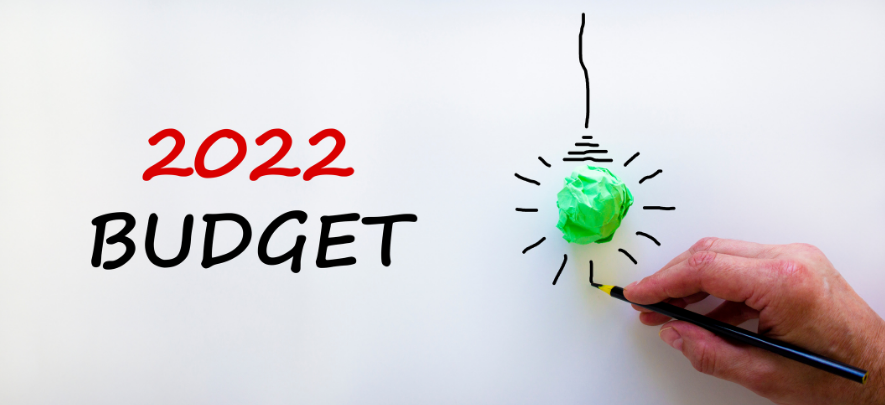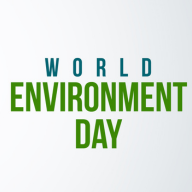Budget expectations across sectors

Economy
165 week ago — 11 min read
The Union Budget is to be presented in Pariliament on 1 February 2022. Here are some industry-wise expecatations from the Budget put together by experts at Deloitte.
Overall Expectations
Expectation #1: Focus on infrastructure and asset monetisation
There is an expectation that the government will focus on implementing the policies announced so far and expedite the projects underway. To begin with, the government will likely focus on increasing the share of capital investment, including infrastructure, and frontload spending in the coming quarters. This is something the finance minister has already reinforced in her statements earlier. The other expectation would be that on raising capital for investments through asset monetisation.
Expectation #2: Demand and employment by stimulating MSMEs
The other focus must be to enable the ecosystem around job, income, and demand creation. India is a domestic-demand-driven economy, and a strong recovery will require a sustainable pickup in demand. That will require more jobs and employment opportunities to fatten consumers’ wallets. Since micro, small, and medium scale enterprises (MSMEs) are the biggest job creators of India, the government will have to emphasise reviving the sector by enabling the ecosystem that supports these enterprises. Identifying their pain areas and devising a solution to help them become a part of ‘Atmanirbhar Bharat’ will aid in their recovery. In addition, access to credit is critical, and providing targeted credit support to these enterprises should be considered. The government may choose fewer segments to start with and revive opportunities for those selected MSMEs.
Expectation #3: Support to the disproportionately impacted sectors
The government will have to support the sectors that have been disproportionately impacted by the pandemic and where recovery is likely to be gradual as uncertainties linger. Support to the travel and hospitality sector should be considered as they significantly contribute to GDP. The government must try a few out-of-the-box ideas or experiment with initiatives followed in the other parts of the world. One such experiment could be of tourism “sandboxes” (followed in Thailand and Indonesia), and invite fully vaccinated foreign tourists to travel a limited area. Improvised service offerings could boost the hospitality sector. The government must look into short-term revival plans as well as long-term plans to address the structural changes these industries are going through and have contingency plans to deal with uncertainties.
Expectation #4: Boost to exports
Exports have done well, and we expect the government to emphasise cross-border trade and investments. With several FTAs queued up in the near term, the focus must be on short-term as well as long-term measures to boost exports from and encourage FDI in sectors where India has a competitive advantage. Competitiveness will require efficient import and export regulations, and the government must address issues that hinder trade growth.
Expectation #5: Focus on social sectors (education and health)
Finally, there has to be more allocation towards building the health infrastructure and preparing the workforce for the future through training and skill developments. COVID-19 has certainly highlighted the gaps in health infrastructure that need to be filled. Similarly, students from underprivileged families have been impacted by several education institutes closing down. The government must plan a way forward to bring these impacted kids back into the education system.
Direct Tax
In the recent past, the Government of India has rolled out several policy measures on the direct tax front to encourage private investments and provide tax certainty to investors and businesses. The government should consider introducing necessary steps to address concerns of the investors/taxpayers in the forthcoming budget.
Expectation #1: Allow the deduction for CSR expenses and other expenditure incurred on account of the pandemic.
Expectation #2: Withdraw/recalibrate the amendment denying tax depreciation on goodwill; alternatively, the amendment be made prospective and grandfathering be allowed for pre-existing goodwill.
Expectation #3: Recalibrate nexus rule for foreign taxpayers.
Expectation #4: Lay out tax policy framework for taxation of cryptocurrencies.
Indirect Tax
The focus of this year’s budget is likely to be on the recovery of the economy, reassurance to the industry, and an indication that they are aligned to the trends in the market. While the pandemic has proved challenging, the government has used this opportunity to bring about economic revival through export facilitation measures.
Expectation #1 Roadmap of incentives/programmes for a wide range of sectors.
Expectation #2 Need for favourable changes to the SEZ scheme.
Expectation #3 Positive progress on Free Trade Agreements (FTA) and other customs changes.
Expectation #4 Key GST policy changes
Energy, Resources & Industrials
Monetisation of various assets by the government, including the railways and roads, airports, oil and gas sector, was the highlight of FY21. It is expected that during the next year as well the government will continue to focus on these areas and include more industries from the Energy, Resource & Industrials (ERI) sector in this monetisation list, which will provide money for other key infrastructure development projects.
Expectation #1 Provide a consolidated or group taxation regime for the infrastructure sector.
Expectation #2: Inclusion of power sector, railway redevelopment or airport redevelopment as specified business for the purpose of section 35AD.
Expectation #3: Increase wage limit for new employee deduction (section 80JJAA) for employees in manufacturing and mining sector.
Consumer Industry
India is a consumer-driven economy. The retail sector is expected to touch US$1.3 trillion by 2024 compared with the current size of US$883 billion in 2020. The pandemic was extremely disruptive, and each wave brought its own set of challenges. The government can support the growth of consumer industry by improving ease of doing business to accelerate multi-channel or hybrid capabilities, creating policies to support technology development, and building infrastructure to optimise retail supply chain.
Expectation #1: Ease of doing business to accelerate multi-channel or hybrid capabilities.
Expectation #2: Government can create policies to support technology development.
Expectation #3: Building infrastructure to optimise retail supply chain.
Education
The most significant development in the education sector in the past year was the announcement of the National Education Policy (NEP) 2020, which has the potential to transform the education system in the country.
Expectation #1: Facilitate increased allocation to the education sector to assist implementation of NEP.
Expectation #2: Guidelines for setting-up of International Branch Campuses (IBCs) by foreign universities.
Technology, Media & Telecommunications
Global impact of COVID-19 accelerated technology and digital adoption across industries. It also heralded hybrid work environments, heavily reliant on technology led solutions. As per various estimates, India’s technology industry (excluding e-commerce and internet services) is expected to record a growth of 2.3% in FY2021 to reach US$ 194 billion, of which exports constitute roughly US$ 150 billion. The Indian e-commerce market is expected to grow to US$ 111.40 billion by 2025 from US$ 46.2 billion as of 2020. By 2030, it is expected to reach US$ 350 billion. Digital continues to drive growth for the industry in domestic as well as export markets.
Expectation #1: Creating advanced manufacturing jobs.
Expectation #2: Boost 'Made in India' for electronics.
Expectation #3: Support commercial deployment of 5G - the future of communications.
Life Sciences & Healthcare
A number of steps taken by the government in the recent past for the healthcare sector have clearly demonstrated the importance that the sector duly deserved. Achieving affordable healthcare for all is the ask of current times.
Expectation #1: Tax holidays and funding for hospitals and skill development.
Expectation #2: GST Reforms - Bring more life-saving drugs at the lowest rate of GST and “zero-rating” of GST for health care services.
Expectation #3: Creating the ecosystem for innovation and research.
GlobalLinker recently conducted a webinar where a seasoned Chartered Accountant & Tax Expert shared insights on how Budget 2022 impacts MSMEs. Watch the highlights below.
Information source: Deloitte
Image source: Canva
Disclaimer: The views and opinions expressed in this article are those of the indicated source and do not necessarily reflect the views, official policy or position of GlobalLinker.
Posted by
GlobalLinker StaffWe are a team of experienced industry professionals committed to sharing our knowledge and skills with small & medium enterprises.
View GlobalLinker 's profile
Other articles written by GlobalLinker Staff
Declutter Your Business the Marie Kondo Way
47 week ago
Most read this week
Trending
The Art & Science of People Pleasing in Retail
Retail 11 week ago
Entrepreneurship 11 week ago













Comments
Share this content
Please login or Register to join the discussion